Physiotherapist and specialist hand therapist Roma Bhopal has received royal recognition for her work, as Robert Millett reports
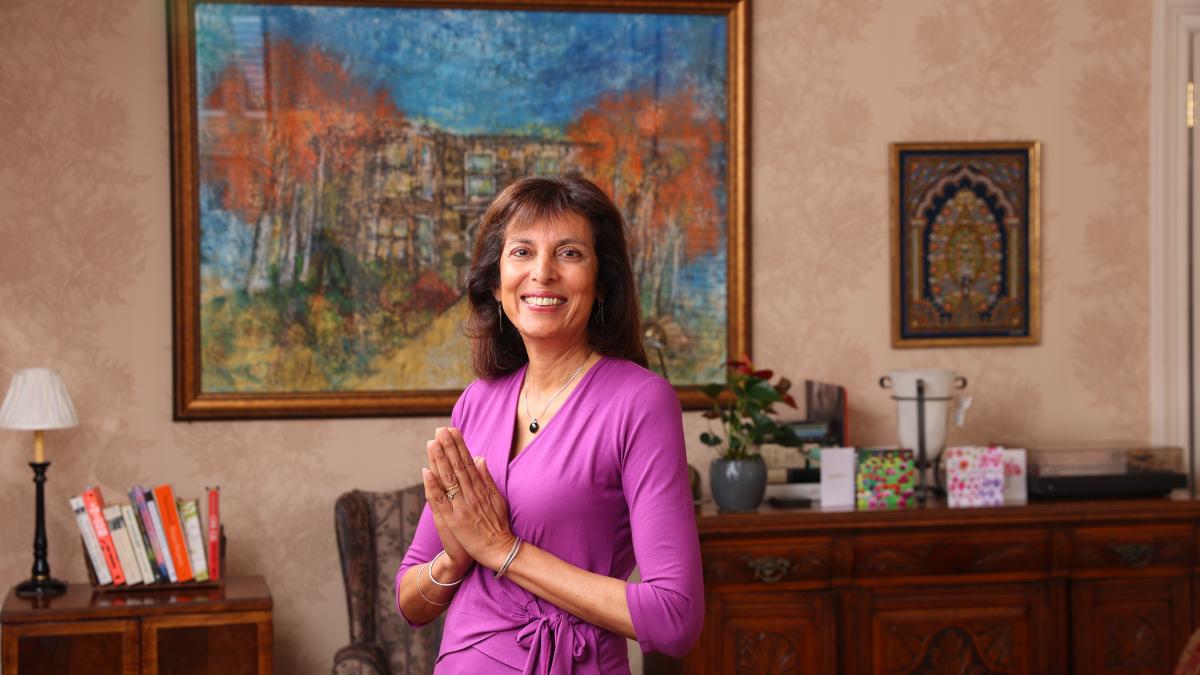
In June this year, Roma Bhopal was ‘extremely’, yet pleasantly, surprised when King Charles’s inaugural birthday honours list was published.
Roma, who lives in Edinburgh, was delighted to discover that she’d unexpectedly been made a Member of the Order of the British Empire (MBE) for her services to physiotherapy.
Having previously worked at the Royal Infirmary of Edinburgh, as a physiotherapist and specialist hand therapist, Roma decided to retire five years ago and had no idea that anyone planned to nominate her for such a prestigious honour.
As we speak, just two days after the honours were announced, she unassumedly mentions that she’s just happy that whoever nominated her thought she’d been ‘busy enough’ to deserve it.
Later, as we talk about her various achievements and experiences, it becomes clear that Roma certainly has kept herself busy over the years.
Before she retired, she managed the Royal Infirmary’s hand therapy service for almost 20 years, a role that saw her overseeing the treatment and rehab of patients with long-term conditions, complex trauma and post-surgical needs. She also provided guidance and education about hand therapy to junior staff, students and medical colleagues to ensure patients received the best possible care, and spearheaded the hospital’s role as one of NHS Lothian’s regional referral and advice centre for hand therapy.
But alongside all this, and her family life, Roma also spent many years working in voluntary positions, including on overseas projects in countries such as India and Cambodia, in order to help enhance education and share new and specialist knowledge within the field of hand therapy.
As part of this work, she took on various key roles for non-profit organisations, including the British Association of Hand Therapists where she served as chair of the charity; the European Federation of Societies for Hand Therapy where she served as president; and the International Federation of Societies for Hand Therapy.
During her tenure in these roles, Roma was clearly driven by a passion to promote hand therapy, increase the knowledge and skills of hand therapists and improve the training and resources available to them, both in the UK and beyond.
But her initial career aspirations sprang from a far simpler desire – she just wanted to find a role where she could help ill or injured people in a direct, tangible form, while also having the opportunity to focus on patients in a way that she hoped would resonate with her compassionate nature.
‘I was a bit unsure about what to do when I left school,’ she recalls.
‘I was interested in the medical field, but I knew that I didn’t really want to become a doctor.
‘And then a friend told me about physiotherapy, and I really liked the idea of a hands-on, practical way of helping people to get back their fitness or return to activities after an injury or disability – and I thought, yes, that would suit me and the sort of person I am - being able to spend time with people and help them achieve the best outcome following an injury.’
After school Roma trained as a physiotherapist at King’s College Hospital in London.
‘At that time our training was hospital-based, as it was before the degree courses, so we had a year where you learnt anatomy and physiology and then, in the second and third year, we had a half a day of clinical work as students and then a half a day of lectures.’
‘It was a fantastic experience. We did all the rotations and placements that students do now and, although we had a fair amount of supervision, we were also given a lot of independence and were expected to just get on with it. We certainly weren’t mollycoddled.’
Roma qualified in 1978 and went on to specialise in hand therapy while she was working in the outpatient department at South Tyneside District Hospital.
The hand therapy department was right next door, and it looked interesting and very different, so I asked if I could do a rotation there.
Her stint in the department was only meant to be temporary, but she found the work so captivating that it soon turned into a long-term commitment.
‘I went for six months, but then I just never left – as I loved it so much,’ she says. ‘I realised I’d found my place.’
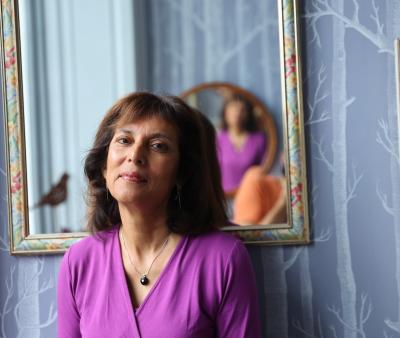
Roma relished the variety of cases and the collaborative nature of the work, which often involves surgeons, occupational therapists, pain managers and social workers.
‘Hand therapists have to work closely with both orthopaedic trauma surgeons and plastic surgeons.
‘On the trauma side we deal mainly with fractures, but we also see people who’ve had burns or soft tissue injuries, or tendon or nerve injuries, and then need plastic surgery.’
‘We also treat lots of other conditions as well, for example, repetitive strain injuries and arthritic conditions, which don’t need surgery, and conditions where people have just been immobilised for a short while.’
Roma says one of the reasons she became so passionate about hand therapy was the life-changing impact it can have on patients, both physically and mentally.
‘Often people say: “I’m a sports person” or “I’m a musician”, so my hands are so important.
‘And, yes, they are. Of course, they’re important, but they’re also no more important than the hands of a mother who has to look after a baby.
‘They are important to everyone, in whatever job they have or whatever they do, as it makes a huge difference if you’ve got a hand that works or a hand that doesn’t.’
Along with the effects of any functional limitations, Roma says it’s also important to bear in mind the psychological impact and distress that can result from injuries or conditions that impair a person’s use of their hands.
‘We all use our hands to communicate,’ she says.
‘We use them to talk. We’re always moving our hands – gesturing, pointing, showing people things – and, of course, we also use them for showing affection.
‘So, aside from the physical, practical things, that’s also what I found really fascinating…especially when I learnt just how many different problems could occur.’
Getting actively involved
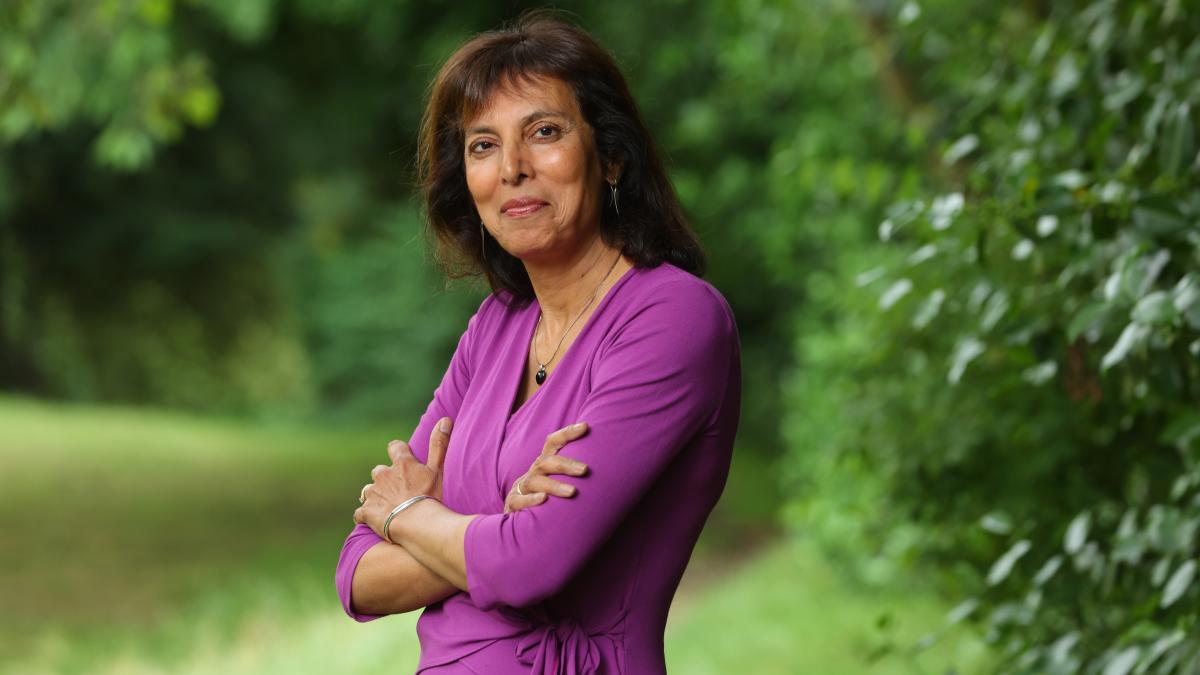
It was while working in South Shields that Roma first attended a conference organised by the British Association of Hand Therapists (BAHT).
‘I’d been a senior 2 for a year or two and my senior 1 said “we’re going to this conference”’, Roma recalls.
‘I’d never thought about going to a conference, but she said, “no, it’s very important”. And I have to hand it to her as she set me on the right track.’
Roma’s department agreed to pay for both of them to attend the conference and the event turned out to have a lasting and influential impact on her.
‘In your area there might only be a handful of therapists who work in your speciality, but when you go to a conference you see that there are therapists around the country, and they’re so enthusiastic,’ Roma says.
‘The most enthusiastic and motivated therapists tend to come to conferences. So, I just thought, gosh, this is great. And I came back buzzing and really motivated.’
As a result, Roma later applied to join the BAHT committee and became an active and influential contributor to the organisation. So much so that she ended up taking on the charity’s lead position.
‘If I take something on, I’ll do it seriously,’ Roma says. ‘And I was elected chair of the committee in 1999.’
Nine years later, Roma also became the president of the European Federation of Societies for Hand Therapy (EFSHT), where she was instrumental in the development of an accredited training course, the European Certified Hand Therapist (ECHT) qualification, which is now recognised throughout Europe.
In addition to all this, Roma also became involved with and contributed to the work of the International Federation of Societies for Hand Therapy.
All these connections and positions of responsibility inevitably generated a lot of extra, out-of-hours work for her, on top of her day-to-day clinical duties and family commitments. And attending committee and federation meetings (in the days before Zoom or Teams) required regular early mornings and late-night returns, as she travelled between Edinburgh and London, or even further afield for international conferences.
‘I can’t deny it was quite difficult at times,’ Roma admits.
‘You have to have support from your department, and I needed support from my husband to make sure he was around and able to help out. it wasn’t the easiest thing at all, but I always came back buzzing.’
‘And I think all these extra things are probably what kept me working for so long in such an enthusiastic manner.’
Expanding knowledge and horizons
Although she’s been settled in Edinburgh for many years, over the course of her career Roma worked in many locations, both in the UK and abroad.
‘I got my first job in Edinburgh, where I worked for a couple of years, and then I met my husband-to-be, and he was a junior doctor,’ she says.
‘We are both of Indian origin, but neither of us had ever lived there, so we really wanted to know the country better.
‘So, we spent about seven months travelling in India and while we were there, we took the opportunity wherever we were, if we saw a little clinic or hospital or a rehab centre, we would ask “Is it alright if we come in and see what you’re doing?” And everyone was really happy to let us.’
Years later, in 2006 and 2010, Roma returned to India, but this time with a team of surgeons and another hand therapist to provide charitable treatment to people affected by leprosy at the Anandwan Community in Warora.
‘It was part of a community built for people with leprosy, because people with such disabilities are really shunned,’ Roma explains.
‘The surgeons went out there first to do nerve transfers and then we went out six weeks later and took the patients’ casts off and gave them hand therapy.
It was interesting because here you’d never put someone in a cast for six weeks, but with the leprosy, the physiology is such that you can and they don’t get all scarred up and tight
'And they were all healed [from the surgery] by then so it was much easier to get them doing exercises and to send them home.
‘Many of them came from small villages and we had to make sure that they were safe to get on with their lives.’
More recently, Roma made five trips to Cambodia, between 2015-17, working again as part of a charitable team of surgeons and therapists. But this time her work focussed on providing local physiotherapists with essential training in hand therapy skills, to ensure they could continue to treat people long after she’d left.
‘I was teaching them hand therapy skills so they could treat the particular conditions they commonly saw.
‘They had a lot of post-trauma, burns and tendon and nerve reconstruction cases, which our surgeons were doing, and also many brachial plexus injuries, because a lot of young men there were coming off motorbikes.’
In contrast to her time spent treating people with leprosy in India, Roma says such charitable ventures had positively evolved by the time she went to work in Cambodia.
‘Previously, it was very much a case of the surgeons and therapists going out, providing treatment and then coming back home,’ she explains.
‘Whereas now it’s very much case of going out there and teaching skills. You have to teach local people to make it sustainable because by just going out and treating a few patients, that helps them of course, but it doesn’t really move things forward greatly.’
‘The idea of charity work now is to go in, have an exit plan, teach and then leave. Hopefully that model can then be used in many places, and you can reach people in more than one place.’
Staying motivated and up to date
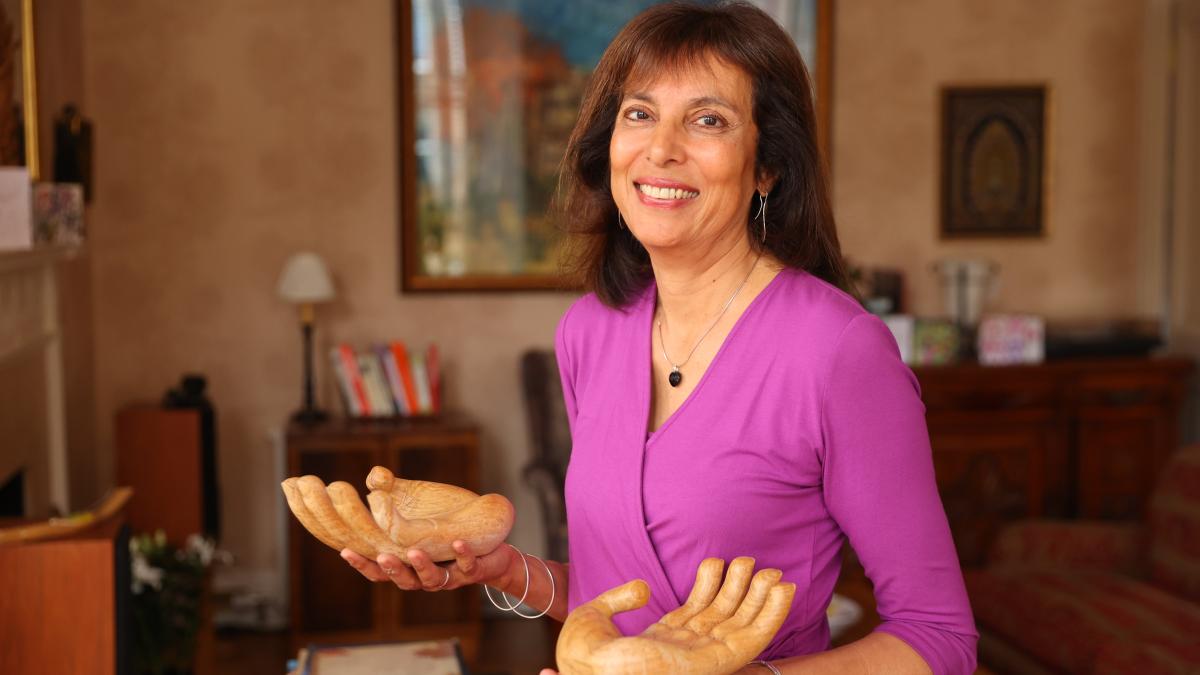
Hand therapists play a pivotal role in patients’ recovery, Roma says, as their knowledge and skills can have a significant impact on improving outcomes.
And throughout her career she found that other clinicians, and surgeons especially, valued their work.
All the surgeons I’ve ever worked with have said that good hand therapy makes all the difference to their results,’ she says.
‘They really appreciate our work and it’s wonderful to work in that kind of environment.’
Both OTs and physios can be hand therapists, Roma adds, and the basic hand therapy course, offered by BAHT, can be a good starting point for any physios or OTs who are interested in learning more about hand therapy.
‘Or, if you have a chance, ask to do a stint in a hand therapy department, so you can find out more about what we do,’ she says. ‘Or even just go and visit a department for a day. People are usually very accommodating.
‘There are also student prices and things like that for BAHT conferences, so I’d really encourage people to attend if they want to find out more.’
Roma says attending conferences and meeting with other therapists in your field can boost your motivation, improve your practice and help you stay up to date.
‘You can get quite bogged down in the work of just seeing your patients every day and always doing things in the same way that you were taught.
‘But there’s a big, wide world out there with other people who are working on similar things but in many different ways, and you have to keep up with it all.
‘One great way of doing that is by going to conferences and hearing people who are involved in research or are using new techniques. That’s how you learn.’
Roma says workplace support is vital to maintaining and enabling ongoing learning, innovation and improvement.
I think heads of department need to look at the bigger picture, in terms of keeping staff motivated and making sure they’re giving patients the best possible treatments
‘It’s really important. I think it’s all about motivation, especially once you’ve been doing something for a number of years - you need something to keep you motivated.
‘I was never one of those people who said, “I can’t wait till I retire”. I enjoyed my job until the minute I left.’
Even in her retirement, Roma is still keeping herself busy and helping other hand therapists when she can.
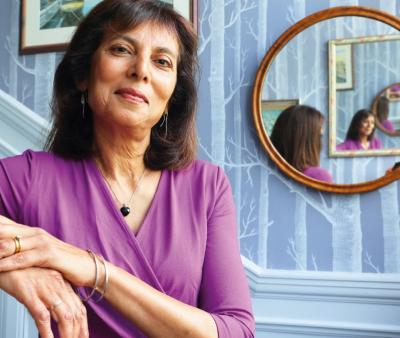
‘I still get calls all the time from people who want to go abroad and want advice, or from European colleagues who want to talk about something, so I’m involved in that way, but now my energies are mostly devoted to a walking group that I set up with a friend about 10 years ago.
‘I discovered that a lot of my Scottish and English friends were active and going to the gym and running and things like that.
But my Indian friends - and I know this is a wide generalisation - but a lot of them weren’t. It just wasn’t in the culture, and I just thought that’s no good, we also need to be looking after our health and wellbeing.’
As a result, Roma started a local walking group for people of Indian origin, which meets every Saturday.
‘We just started off with walks along the side of the canal, but a few weeks ago we climbed Ben Nevis.’
Number of subscribers: 1




































